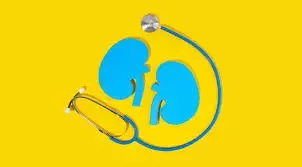- Home
- Medical news & Guidelines
- Anesthesiology
- Cardiology and CTVS
- Critical Care
- Dentistry
- Dermatology
- Diabetes and Endocrinology
- ENT
- Gastroenterology
- Medicine
- Nephrology
- Neurology
- Obstretics-Gynaecology
- Oncology
- Ophthalmology
- Orthopaedics
- Pediatrics-Neonatology
- Psychiatry
- Pulmonology
- Radiology
- Surgery
- Urology
- Laboratory Medicine
- Diet
- Nursing
- Paramedical
- Physiotherapy
- Health news
- Fact Check
- Bone Health Fact Check
- Brain Health Fact Check
- Cancer Related Fact Check
- Child Care Fact Check
- Dental and oral health fact check
- Diabetes and metabolic health fact check
- Diet and Nutrition Fact Check
- Eye and ENT Care Fact Check
- Fitness fact check
- Gut health fact check
- Heart health fact check
- Kidney health fact check
- Medical education fact check
- Men's health fact check
- Respiratory fact check
- Skin and hair care fact check
- Vaccine and Immunization fact check
- Women's health fact check
- AYUSH
- State News
- Andaman and Nicobar Islands
- Andhra Pradesh
- Arunachal Pradesh
- Assam
- Bihar
- Chandigarh
- Chattisgarh
- Dadra and Nagar Haveli
- Daman and Diu
- Delhi
- Goa
- Gujarat
- Haryana
- Himachal Pradesh
- Jammu & Kashmir
- Jharkhand
- Karnataka
- Kerala
- Ladakh
- Lakshadweep
- Madhya Pradesh
- Maharashtra
- Manipur
- Meghalaya
- Mizoram
- Nagaland
- Odisha
- Puducherry
- Punjab
- Rajasthan
- Sikkim
- Tamil Nadu
- Telangana
- Tripura
- Uttar Pradesh
- Uttrakhand
- West Bengal
- Medical Education
- Industry
Good oral health linked to better prognosis of patients of CKD

Good oral health is linked to better prognosis of patients with Chronic Kidney Disease suggests a new study published in the Oral Diseases.
The purpose of this investigation was to analyze the prevalence of apical periodontitis (AP) and periodontal disease (periodontitis) (PD) in Chronic kidney disease (CKD) patients in relation to their treatment phase.
Chronic kidney disease (CKD) is a progressive, slow, silence, and irreversible disease characterized by a gradual destruction of the nephrons and a consequent reduction of kidney function in a few months or years and cause a systemic inflammatory reaction. CKD is clinically defined as estimated decrease glomerular filtration rate (GFR) <60 mL/min/1.73 m2, for 3 months or more (Levey et al., 2005). The number of patients with CKD is increasing worldwide, estimating its global prevalence, including the end-stage kidney disease, between 11% and 13%, being stage 3 (GFR 30–59) the most prevalent (7.6%). Thus, CKD can be considered a main public health problem. The well-established risk factors for people with CKD include uncontrolled diabetes, cardiovascular disease, uncontrolled high blood pressure, and age more than 60 years. The life-saving treatment of CKD includes dialysis (hemodialysis or peritoneal dialysis), which is the most common treatment, and/or kidney transplant. On the other hand, inflammation is the result of the body's immune response to different stimuli. In acute inflammation, the primary immune response draws immune cells to the site of injury, thus resolving the problem and allowing a return to the status quo. However, chronic inflammation, the result of acquired immune response, can lead to tissue damage and fibrosis, having been associated with numerous diseases, such as arthritis, asthma, atherosclerosis, autoimmune diseases, diabetes, cancer, aging, and CKD.
In this cross-sectional study, 188 patients with CKD were divided into two groups: patients without dialysis (WD group, n = 53) and patients on dialysis (DP group, n = 135). Panoramic radiographs were used to diagnose AP. The presence of periodontal disease was evaluated radiographically assessing alveolar bone loss. Student's t-test, chi-squared test, and logistic regression analysis were used to determine the significance of differences between groups.
Results
In the WD group, 55% of patients had at least one tooth with AP, whereas in the DP group 67% had at least one tooth with AP (OR = 2.11; 95% CI = 1.09–4.08; p < 0.05). PD was more prevalent in the DP group (78%) than in the WD group (36%) (OR = 6.26; CI 95% = 3.13–12.52; p < 0.01).
Oral infections are more prevalent in the advanced stages of CKD. The treatment of PD and AP should be incorporated in the treatment planning of patients with CKD.
Reference:
Palmeira, E., de Liz Pérez-Losada, F., Díaz-Flores-García, V., Segura-Sampedro, J. J., Segura-Egea, J. J., & López-López, J. (2023). Prevalence of oral infections in chronic kidney disease patients: A cross-sectional study. Oral Diseases, 00, 1–8. https://doi.org/10.1111/odi.14663
Keywords:
Palmeira, E., de Liz Pérez-Losada, F., Díaz-Flores-García, V., Segura-Sampedro, J. J., Segura-Egea, J. J., & López-López, J, Oral Diseases
Dr. Shravani Dali has completed her BDS from Pravara institute of medical sciences, loni. Following which she extensively worked in the healthcare sector for 2+ years. She has been actively involved in writing blogs in field of health and wellness. Currently she is pursuing her Masters of public health-health administration from Tata institute of social sciences. She can be contacted at editorial@medicaldialogues.in.
Dr Kamal Kant Kohli-MBBS, DTCD- a chest specialist with more than 30 years of practice and a flair for writing clinical articles, Dr Kamal Kant Kohli joined Medical Dialogues as a Chief Editor of Medical News. Besides writing articles, as an editor, he proofreads and verifies all the medical content published on Medical Dialogues including those coming from journals, studies,medical conferences,guidelines etc. Email: drkohli@medicaldialogues.in. Contact no. 011-43720751


